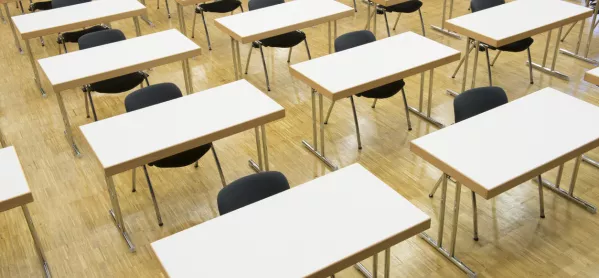Exams 2022: Are we looking at an even bigger crisis?

Across the country, 18-year-olds are counting down to their A-level and vocational qualification results, due to be released in a month’s time. However, unlike in previous years, this cohort has had to battle constant disruption, long spells of remote learning and the replacement of final exams with teacher assessments. Many students will feel incredibly apprehensive and uncertain as to what to expect when they collect their results in August.
Even in a more typical year, teacher-assessed grades play an important role for many young people, due to their role in the universities application process. Such grades will always be subject to human biases, with many students going on to exceed or fall short of their predictions. These biases lead to student-course mismatch, with many students enrolling in courses that are less well suited to their ability. This mismatch was one key reason for the government’s recent consultation on post-qualifications admissions.
But this year not only will there be no final exams to inform university decisions, teachers will also have spent far less classroom time with their students, who in turn will have had far less opportunity to demonstrate their potential. As a result, teacher-assessed grades will likely be less reliable than those grades used in admissions in previous years, while also being given more prominence.
News: Some ‘won’t get level 3’ after qualifications reform
Must read: Ofqual and DfE set out proposals for VTQ assessment
Need to know: Btecs that overlap with T levels to lose funding
And this is not just an issue for A-level students. Last year, vocational qualifications were less affected by teacher assessments. Ongoing project work, interim and practical assessments for the majority of the course duration went ahead as usual, with only the last few months being interrupted. Although many final exams were cancelled, these other assessments meant there was less reliance on teacher assessment.
Teacher-assessed grades for vocational qualifications ‘less robust in 2021’
But this is not true for those finishing their study programmes in 2021. Students taking vocational qualifications will have seen a far greater proportion of their study programme disrupted, experienced greater learning loss and have spent less time with the teachers responsible for setting their grades. We may therefore expect teacher-assessed vocational grades to be less robust this year, and perhaps with increased grade inflation.
The consequence of all this for students is likely to be greater mismatch, both in terms of higher and further education destinations, and employment opportunities.
However, while this year’s cohort have faced hurdle after hurdle, things may be even more challenging for next year’s students. Most students who completed their 16-19 education this year will have taken their GCSEs in summer 2019, prior to the pandemic. GCSEs are known to be highly predictive of A-level results. So even if they have concerns over this year’s grades, admissions officers and recruiters may take confidence from students’ GCSE results.
But students completing their qualifications next year could face a particularly challenging situation, should learning and exams be upended yet again. These students have arguably faced the biggest struggle of all - receiving teacher-assessed GCSE grades in 2020 and then missing a significant amount of face-to-face teaching time in the first year of their A-level or vocational study programmes. If there is further disruption, teachers making assessments, colleges and universities matching students and employers recruiting will no longer be even able to rely on the validity of students’ externally assessed GCSE grades at 16 as a sense check on grades at 18.
The DfE and Ofqual launched a consultation this week on the adjustments that should be made for next year. While this acknowledges the importance of contingency plans for exams being in place, it provides no information on the changes from this year being considered, and the government response isn’t expected to arrive until the autumn term. But lessons from recent history tell us that it is not easy to predict the course of this pandemic and that awarding bodies, schools and colleges will need time to implement a robust back-up plan. There are many reasons to hope that assessments in 2022 will be less disrupted, but unless much more is done, much sooner, next year’s students risk becoming the hardest hit by this crisis yet.
Sam Tuckett is the senior researcher at the Education Policy Institute (EPI) think tank
You need a Tes subscription to read this article
Subscribe now to read this article and get other subscriber-only content:
- Unlimited access to all Tes magazine content
- Exclusive subscriber-only stories
- Award-winning email newsletters
Already a subscriber? Log in
You need a subscription to read this article
Subscribe now to read this article and get other subscriber-only content, including:
- Unlimited access to all Tes magazine content
- Exclusive subscriber-only stories
- Award-winning email newsletters